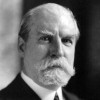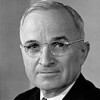In political institutions nearly everything that we now call an abuse, was once a remedy.
[Presque tout ce que nous appelons un abus fut un remède dans les institutions politiques.]
Joseph Joubert (1754-1824) French moralist, philosopher, essayist, poet
Pensées [Thoughts], ch. 18 “Du Siècle [On the Age],” ¶ 21 (1850 ed.) [tr. Lyttelton (1899), ch. 17, ¶ 8]
(Source)
(Source (French)). Alternate translation:
In political institutions, almost everything we call an abuse was once a remedy.
[tr. Auster (1983)], 1813 entry]
Quotations about:
regulation
Note not all quotations have been tagged, so Search may find additional quotes on this topic.
Advanced cultures are usually sophisticated enough, or have been sophisticated enough at some point in their pasts, to realize that foxes shouldn’t be relied on to guard henhouses.
Jane Jacobs (1916-2006) American-Canadian journalist, author, urban theorist, activist
Dark Age Ahead, ch. 6 (2004)
(Source)
On business regulation, versus self-policing.
My views may seem to ignore a moral imperative that businesses should follow virtuous principles, whether or not it is most profitable for them to do so. Instead I prefer to recognize that, throughout human history, in all politically complex human societies in which people encounter other individuals with whom they have no ties of family or clan relationship, government regulation has arisen precisely because it was found to be necessary for the enforcement of moral principles. Invocation of moral principles is a necessary first step for eliciting virtuous behavior, but that alone is not a sufficient step.
Jared Diamond (b. 1937) American geographer, historian, ornithologist, author
Collapse: How Societies Choose to Fail or Succeed, “Big Businesses and the Environment” (2005)
(Source)
Large banks are essentially large children in search of candy, except the candy is profits. The only thing preventing them from grabbing all the candy and making themselves sick are laws and regulations. We cannot rely on them to act morally. It’s not their nature.
Thornton McEnery (contemp.) American business journalist
“Jeffrey Epstein Should Be the Literal End of Deutshe Bank USA,” Above the Law (11 Jul 2019)
(Source)
It was only when the whole ham was spoiled that it came into the department of Elzbieta. Cut up by the two-thousand-revolutions-a-minute flyers, and mixed with half a ton of other meat, no odor that ever was in a ham could make any difference. There was never the least attention paid to what was cut up for sausage; there would come all the way back from Europe old sausage that had been rejected, and that was moldy and white — it would be dosed with borax and glycerine, and dumped into the hoppers, and made over again for home consumption. There would be meat that had tumbled out on the floor, in the dirt and sawdust, where the workers had tramped and spit uncounted billions of consumption germs. There would be meat stored in great piles in rooms; and the water from leaky roofs would drip over it, and thousands of rats would race about on it. It was too dark in these storage places to see well, but a man could run his hand over these piles of meat and sweep off handfuls of the dried dung of rats. These rats were nuisances, and the packers would put poisoned bread out for them; they would die, and then rats, bread, and meat would go into the hoppers together. This is no fairy story and no joke; the meat would be shoveled into carts, and the man who did the shoveling would not trouble to lift out a rat even when he saw one — there were things that went into the sausage in comparison with which a poisoned rat was a tidbit. There was no place for the men to wash their hands before they ate their dinner, and so they made a practice of washing them in the water that was to be ladled into the sausage. There were the butt-ends of smoked meat, and the scraps of corned beef, and all the odds and ends of the waste of the plants, that would be dumped into old barrels in the cellar and left there. Under the system of rigid economy which the packers enforced, there were some jobs that it only paid to do once in a long time, and among these was the cleaning out of the waste barrels. Every spring they did it; and in the barrels would be dirt and rust and old nails and stale water — and cartload after cartload of it would be taken up and dumped into the hoppers with fresh meat, and sent out to the public’s breakfast. Some of it they would make into “smoked” sausage but as the smoking took time, and was therefore expensive, they would call upon their chemistry department, and preserve it with borax and color it with gelatine to make it brown. All of their sausage came out of the same bowl, but when they came to wrap it they would stamp some of it “special,” and for this they would charge two cents more a pound.
Upton Sinclair (1878-1968) American writer, journalist, activist, politician
The Jungle, ch. 14 (1906)
(Source)
We give the highest and the most peculiar praise to the precepts of Machiavelli, when we say that they may frequently be of real use in regulating conduct — not so much because they are more just, or more profound, than those which might be culled from other authors as because they can be more readily applied to the problems of real life.
The proper method for hastening the decay of error is not by brute force, or by regulation which is one of the classes of force, to endeavor to reduce men to intellectual uniformity, but on the contrary by teaching every man to think for himself.
William Godwin (1756-1836) English journalist, political philosopher, novelist
Enquiry Concerning Political Justice, Vol. 2, bk. 8, ch. 6 “Of the Enjoyment of Liberty” (1793)
(Source)
That conception is written large over the history of the nineteenth century, both in England and in America. The doctrine which it inherited was that property was held by an absolute right on an individual basis, and to this fundamental it added another, which can be traced in principle far back into history, but which grew to its full stature only after the rise of capitalist industry, that societies act both unfairly and unwisely when they limit opportunities of economic enterprise. Hence every attempt to impose obligations as a condition of the tenure of property or of the exercise of economic activity has been met by uncompromising resistance. The story of the struggle between humanitarian sentiment and the theory of property transmitted from the eighteenth century is familiar. No one has forgotten the opposition offered in the name of the rights of property to factory legislation, to housing reform, to interference with the adulteration of goods, even to the compulsory sanitation of private houses. “May I not do what I like with my own?” was the answer to the proposal to require a minimum standard of safety and sanitation from the owners of mills and houses.
R. H. Tawney (1880-1962) English writer, economist, historian, social critic [Richard Henry Tawney]
The Acquisitive Century, ch. 3 “The Acquisitive Society” (1920)
(Source)
Our Passions, Ambition, Avarice, Love, Resentment &c possess so much metaphysical Subtilty and so much overpowering Eloquence, that they insinuate themselves into the Understanding and the Conscience and convert both to their Party. And I may be deceived as much as any of them, when I Say, that Power must never be trusted without a Check.
John Adams (1735-1826) American lawyer, Founding Father, statesman, US President (1797-1801)
Letter to Thomas Jefferson (2 Feb 1816)
(Source)
We can imagine no reason why, with ordinary care, human toes could not be left out of chewing tobacco, and if toes are found in chewing tobacco, it seems to us that somebody has been very careless.
(Other Authors and Sources)
Mississippi Supreme Court in Pillars v. R.J. Reynolds Tobacco Co. et al., 78 So. 365 (Ms. 1918)
(Source)
One should never forbid what one lacks the power to prevent.
Napoleon Bonaparte (1769-1821) French emperor, military leader
(Attributed)
An aphorism he frequently used. See Sophocles.
Even the protective functions of the state are most important for those in the lower income brackets. Lethal serum and poison drugs do, one gathers, work rather democratically on rich and poor alike. But many of us could probably survive a certain amount of exploitation in our prescriptions, fraud in our food packaging, mendacity in our dental advertising, or thimblerigging in our securities. We live in parts of cities where epidemics are less likely. The family that struggles to make ends meet, the widow with life-insurance money around loose, the dwellers in urban tenements need the protection of an alert FTC, FDA, SEC, and Public Health Service.
John Kenneth Galbraith (1908-2006) Canadian-American economist, diplomat, author
“Wealth and Poverty,” Speech, National Policy Committee on Pockets of Poverty (13 Dec 1963)
See sourcing notes here.
There once was a time in history when the limitation of governmental power meant increasing liberty for the people. In the present day the limitation of governmental power, of governmental action, means the enslavement of the people by the great corporations who can only be held in check through the extension of governmental power.
Theodore Roosevelt (1858-1919) American politician, statesman, conservationist, writer, US President (1901-1909)
Speech, San Francisco (14 Sep 1912)
(Source)
The only way in which our people can increase their power over the big corporation that does wrong, the only way in which they can protect the working man in his conditions of work and life, the only way in which the people can prevent children working in industry or secure women an eight-hour day in industry, or secure compensation for men killed or crippled in industry, is by extending, instead of limiting, the powers of government.
Theodore Roosevelt (1858-1919) American politician, statesman, conservationist, writer, US President (1901-1909)
Speech, San Francisco (14 Sep 1912)
(Source)
All of you, I am sure, have heard many cries about Government interference with business and about “creeping socialism.” I should like to remind the gentlemen who make these complaints that if events had been allowed to continue as they were going prior to March 4, 1933, most of them would have no businesses left for the Government or for anyone else to interfere with — and almost surely we would have socialism in this country, real socialism, not the kind they define.

















